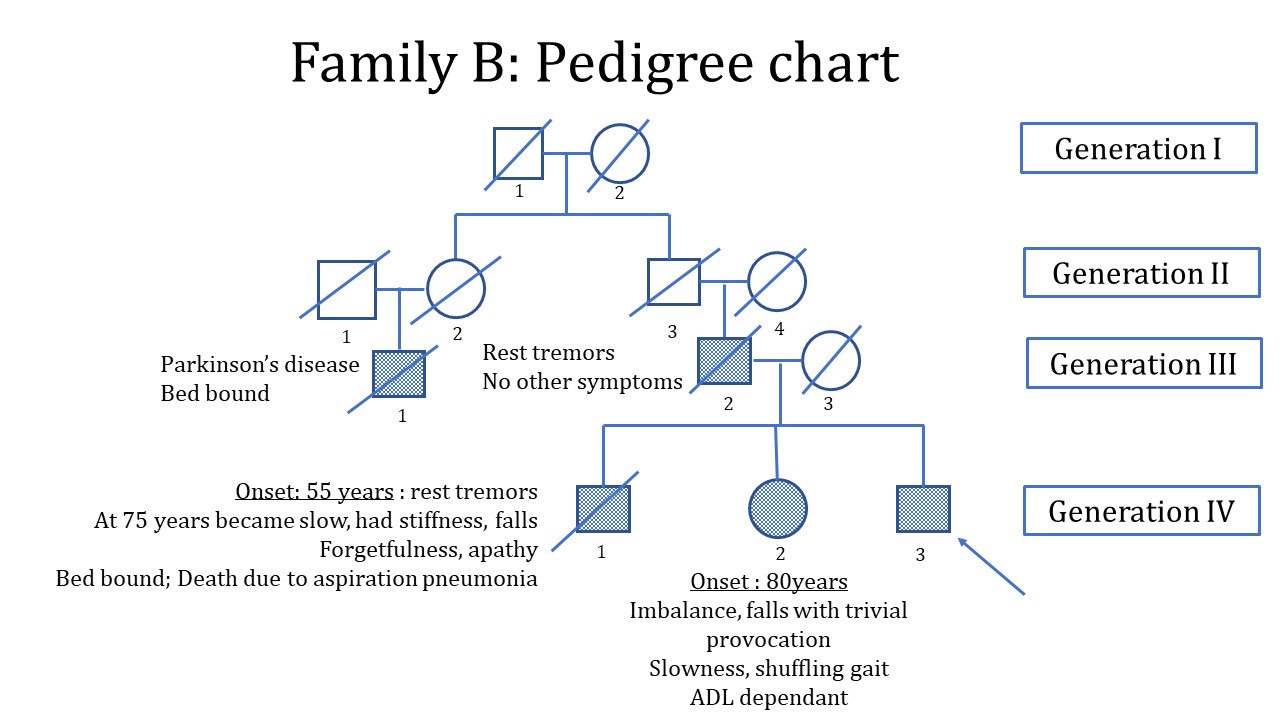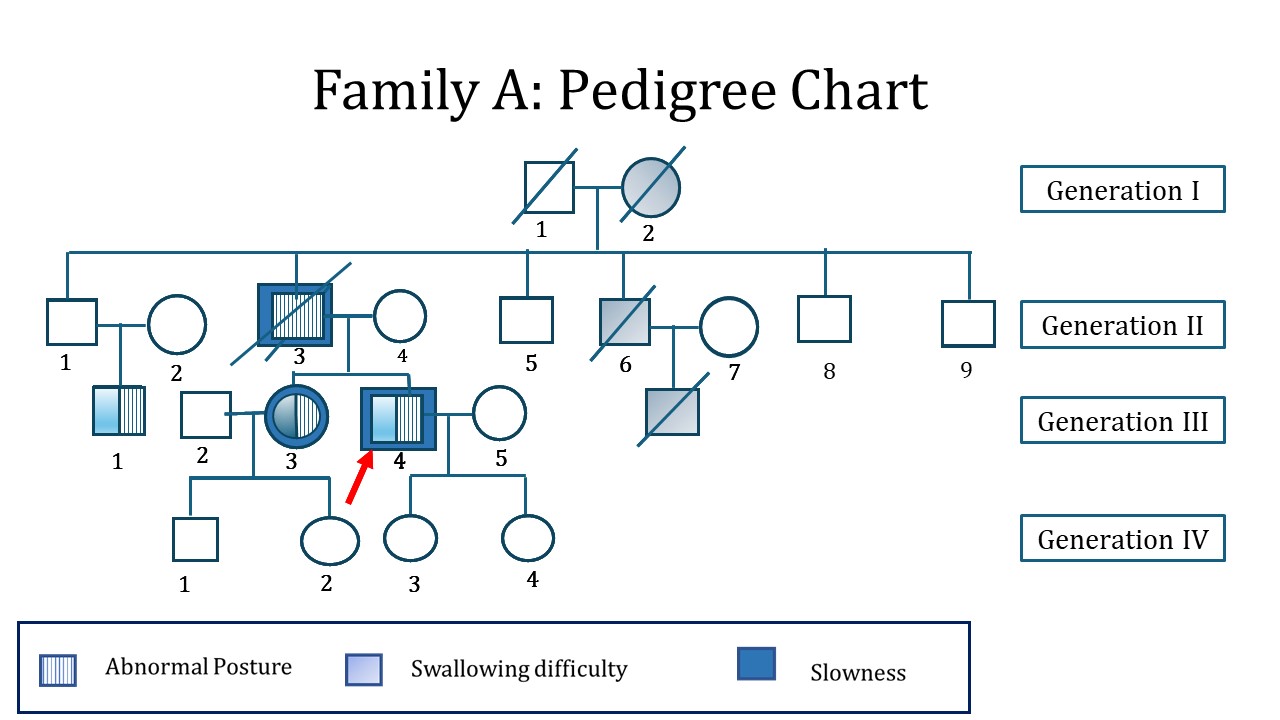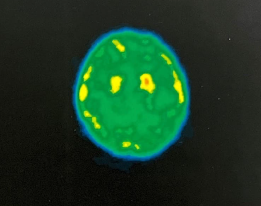Category: Rare Genetic and Metabolic Diseases
Objective: To highlight the significance of heterozygous PLA2G6 and PRKN gene mutations in causing parkinsonism.
Background: We report our observations in two families with multiple members suffering from parkinsonism, which responded to levodopa treatment and had heterozygous PLA2G6 and PRKN mutations.
Method:
Family A. The patient, 56 year old man (A.III.5) presented in 2020 with symmetrical parkinsonism, bulbar dysfunction, and lumbar hyperextension worsening over last 1 year. The patient also had RBD and anxiety. Multiple members of the family had similar symptoms as described in figure 1.
Whole exome sequence analysis of the patient revealed heterozygous mutations in PLA2G6 and PRKN genes. The patient remained well-controlled on medications (levodopa, rasagiline, pramipexole) over the next 3 years of follow-up. The patient’s sister had a similar mutation in the PRKN gene only. (Fig 2) and Her DOPA-PET scan showed a reduction in uptake in bilateral putamen. (Fig 3).
Family B: The patient 76-year-old man (B.IV.3), presented with complaints of symmetrical parkinsonism, and festinating gait for last 8 years. Multiple members of the family were diagnosed with Parkinson’s disease (PD) as described in figure 4. Genetic testing showed heterozygous PLA2G6 mutation in the patient and the elder sister (Fig 5). Both patient and his sister improved with levodopa.
Results: Our observations implied that heterozygous mutations in autosomal recessive disorders are not silent.
Literature regarding the significance of heterozygous mutations is evolving and some observations highlight the association of heterozygous mutations in causing parkinsonism (1,2)
A significant association is observed between heterozygous mutations in PRKN and the risk of development of PD. (3) Also, it is observed that mutation carriers have preclinical changes in functional imaging. (2) Haploinsufficiency is one of the explanations for the expression of heterozygous mutation. (2 ) Thus, the explanation of genetic inheritance and expression is complex and there are multiple factors involved in the expression of a disease genetic, epigenetic, environmental, and susceptibility factors.
Conclusion: Heterozygous autosomal recessive mutations have a role in the development of parkinsonism. Patients with these mutations should be further evaluated with family member testing to ascertain the importance of the heterozygous mutations.
Pedigree chart Family B
Sanger sequence report of sibling in family B
Figure 1. Pedigree chart of Family A
Sanger sequence report of sibling in family A
Fig 3 DOPA -PET of the sibling in Family A
References: 1. Klein C, Lohmann-Hedrich K, Rogaeva E, Schlossmacher MG, Lang AE. Deciphering the role of heterozygous mutations in genes associated with parkinsonism. The Lancet Neurology. 2007 Jul;6(7):652–62.
2. Kalyta K, Stelmaszczyk W, Szczęśniak D, Kotuła L, Dobosz P, Mroczek M. The Spectrum of the Heterozygous Effect in Biallelic Mendelian Diseases—The Symptomatic Heterozygote Issue. Genes. 2023 Aug;14(8):1562.
3. Huttenlocher J, Stefansson H, Steinberg S, Helgadottir HT, Sveinbjörnsdóttir S, Riess O, et al. Heterozygote carriers for CNVs in PARK2 are at increased risk of Parkinson’s disease. Hum Mol Genet. 2015 Oct 1;24(19):5637–43.
To cite this abstract in AMA style:
L. Patil, M. Bhatt. Can Heterozygous Autosomal Recessive Mutations Cause Neurological Disease? [abstract]. Mov Disord. 2024; 39 (suppl 1). https://www.mdsabstracts.org/abstract/can-heterozygous-autosomal-recessive-mutations-cause-neurological-disease/. Accessed July 12, 2025.« Back to 2024 International Congress
MDS Abstracts - https://www.mdsabstracts.org/abstract/can-heterozygous-autosomal-recessive-mutations-cause-neurological-disease/





